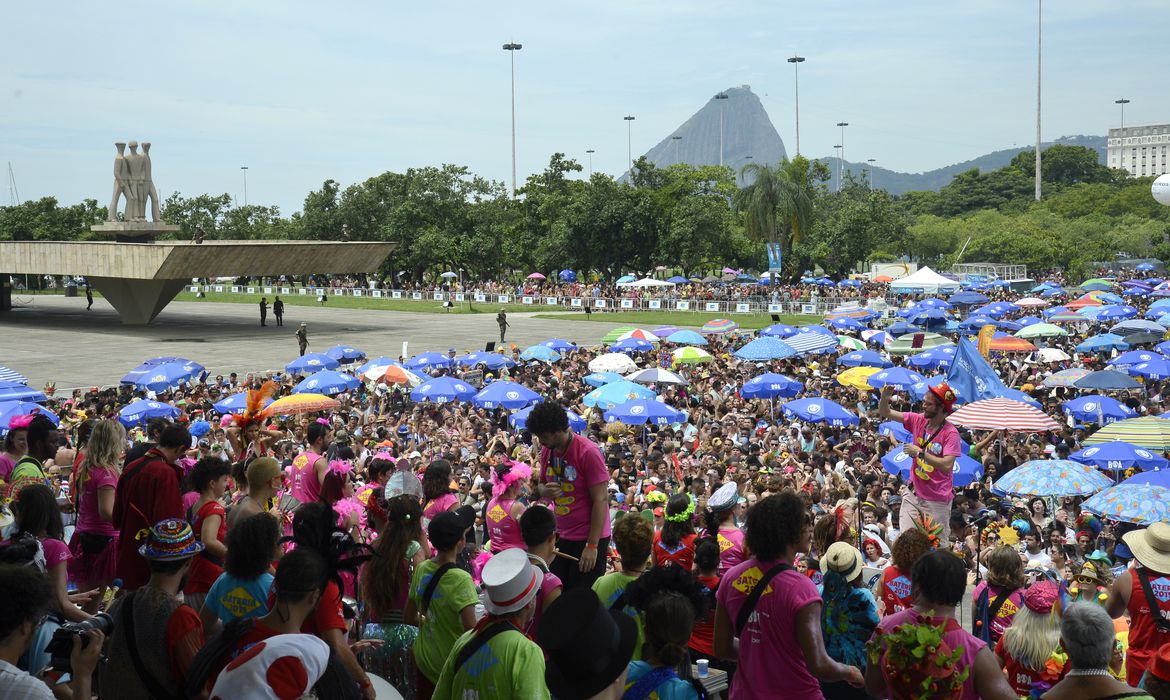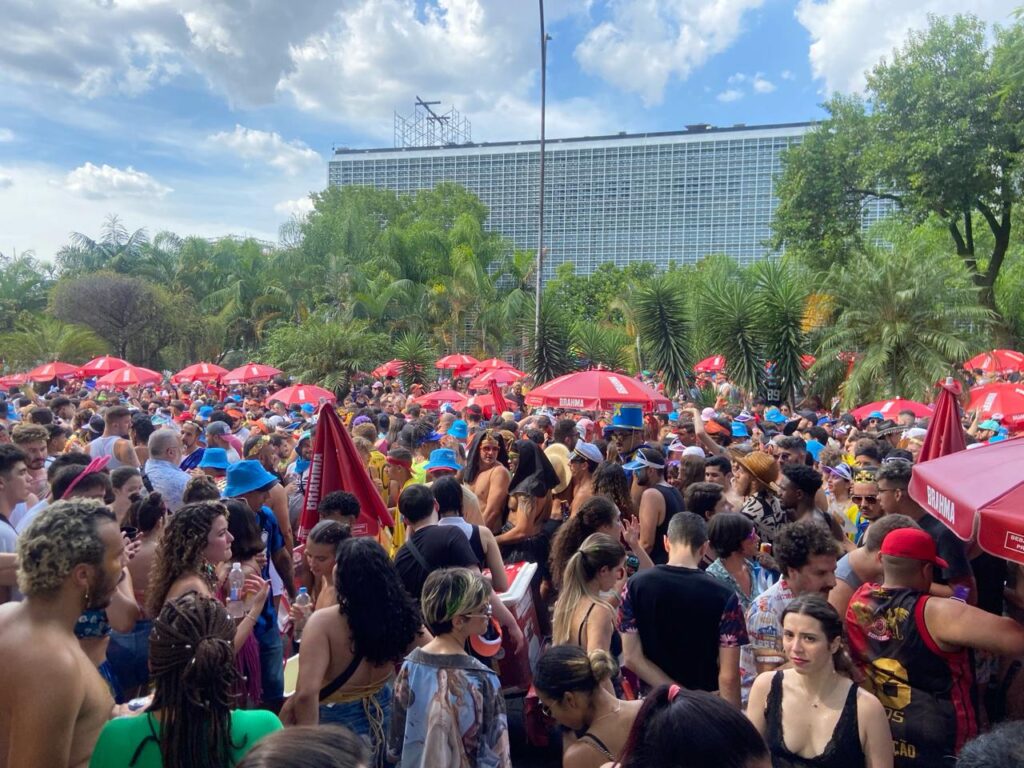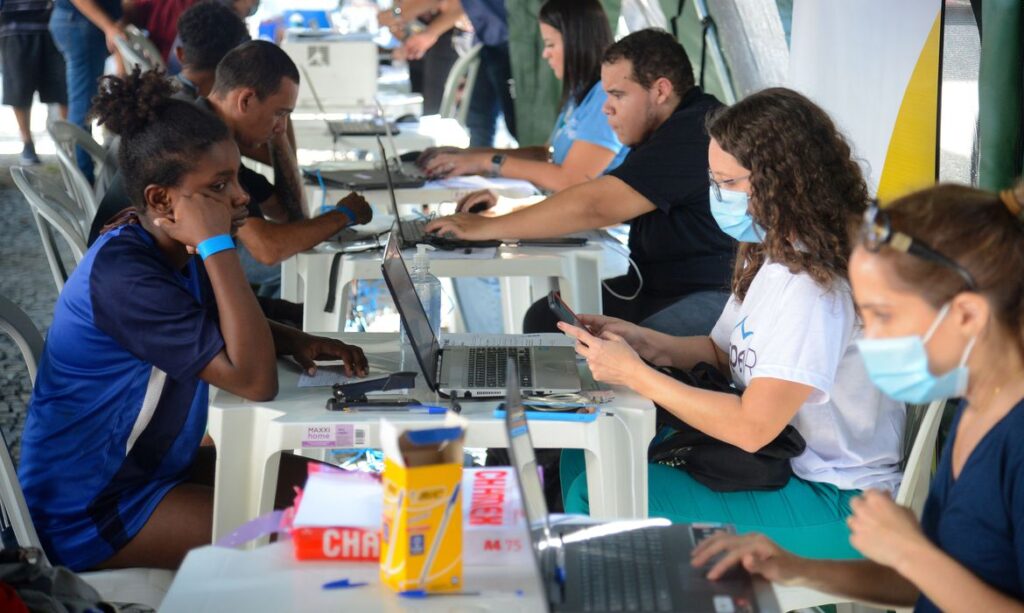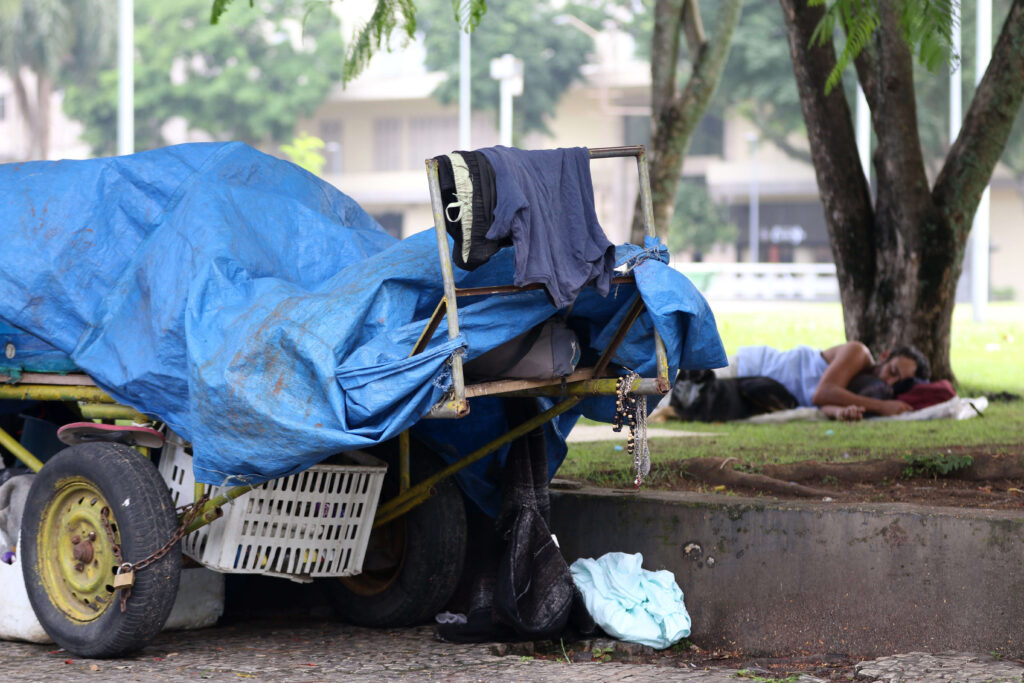São Paulo, Brazil – After two long years without an official Carnival thanks to the Covid-19 pandemic, Brazilians were finally able to cut loose this week for the return of the country’s largest party.
Carnival was completely canceled in 2021 during the height of the pandemic, and 2022 saw many restrictions on the famed event.
That’s why expectations were high, for some, who compared this year’s Carnival to that of 1919, when Brazilians poured into the streets after a one-year hiatus during the Spanish flu outbreak.
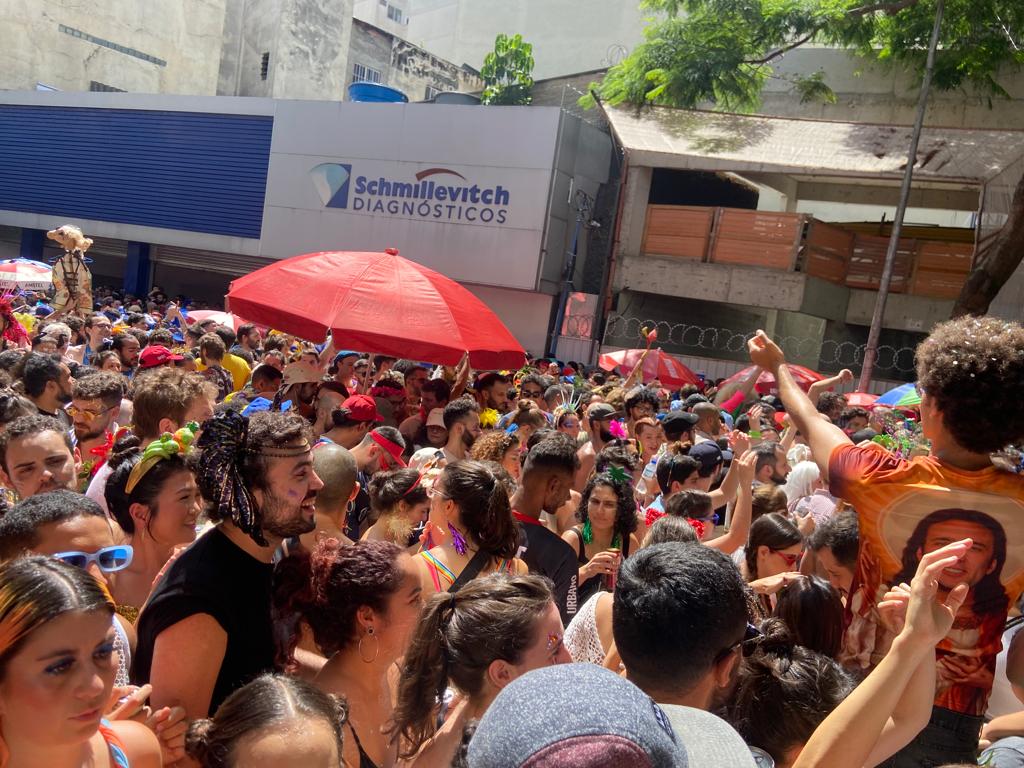
“After two years without Carnival, we can handle any rain. Just put on a cape and keep dancing. We missed Carnival on the streets,” said dentist Daniel Barbosa who danced all day Saturday, the first official day of Carnival, under the São Paulo rain.
Carnival is famous worldwide for its colorful parades of musicians and dancers donning elaborate and sometimes revealing costumes. But one of the best experiences during the festivities are the “carnaval blocos” or Carnival blocks, which gather performers and partygoers for small and large block parties throughout Brazilian cities.
There are Carnival blocks for all types of people and tastes; from traditional samba and axé parties, to gatherings for children and blocks featuring international music. Whichever block you pick, what matters most for Brazilians is getting out into the streets to celebrate.
“Nothing represents Brazil more than the Carnival,” said Samara Nazzir, a businesswoman from São Paulo, who echoed a common theme amongst partygoers that Carnival had been sorely missed these past two years.
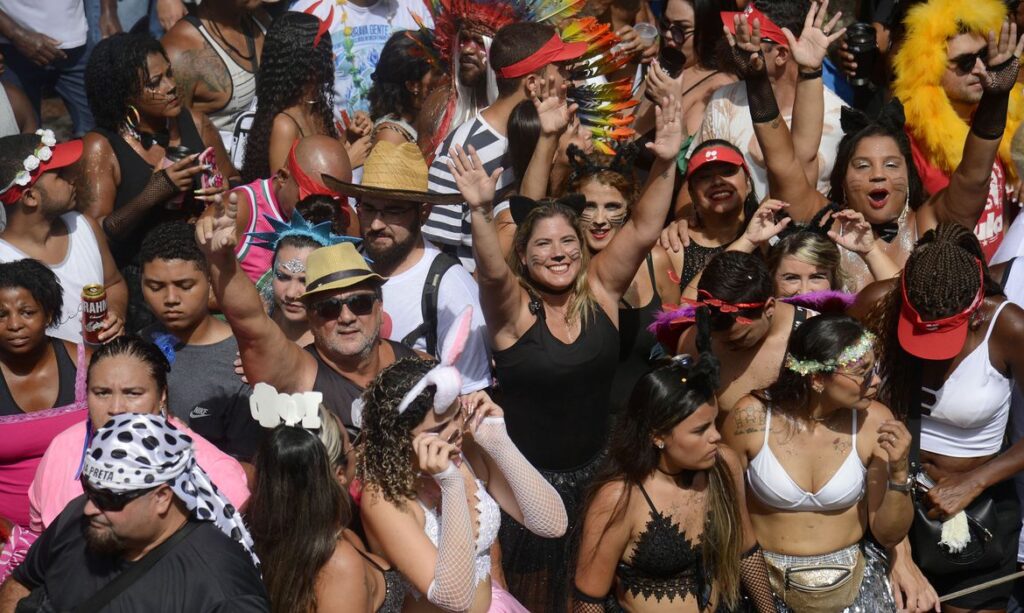
“The parades of samba schools are very traditional, but it’s in the street that the party takes place. It’s on the streets that people leave their routine and forget about life’s problems,” she added.
For saleswoman Laura de Sá, Carnival is about tradition. She said she had grown up going to block parties since she was little and “today, I’m going with my family” pointing out her husband and seven-year-old daughter who, according to Sá, “loves to put on makeup and glitter.”
With Carnival blocks prohibited during the pandemic, Camila Trevisan Ormerod, a publicist from the city of Curitiba in southern Brazil, saw this year’s return of Carnival as an opportunity to do something she hadn’t done before: Enjoy the party from Rio de Janeiro.
Brazil’s second-largest city puts together some of the most famous Carnival blocks in the country.
“It’s certainly going to be the biggest and best carnival of my life,” said Trevisan. “I’m going to make many costumes, in a group and alone. In a group we’re going as Teletubbies.”
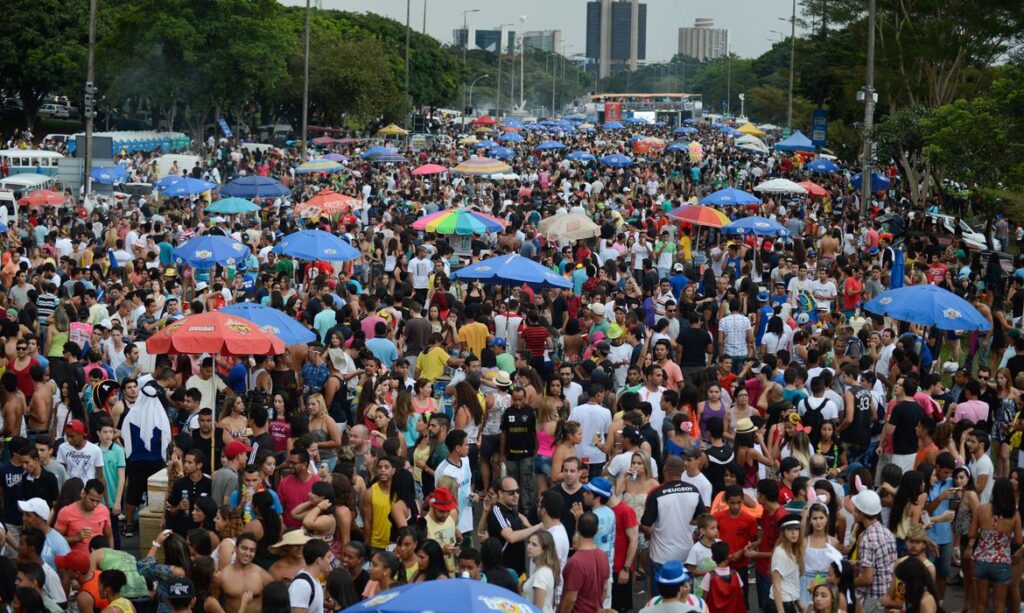
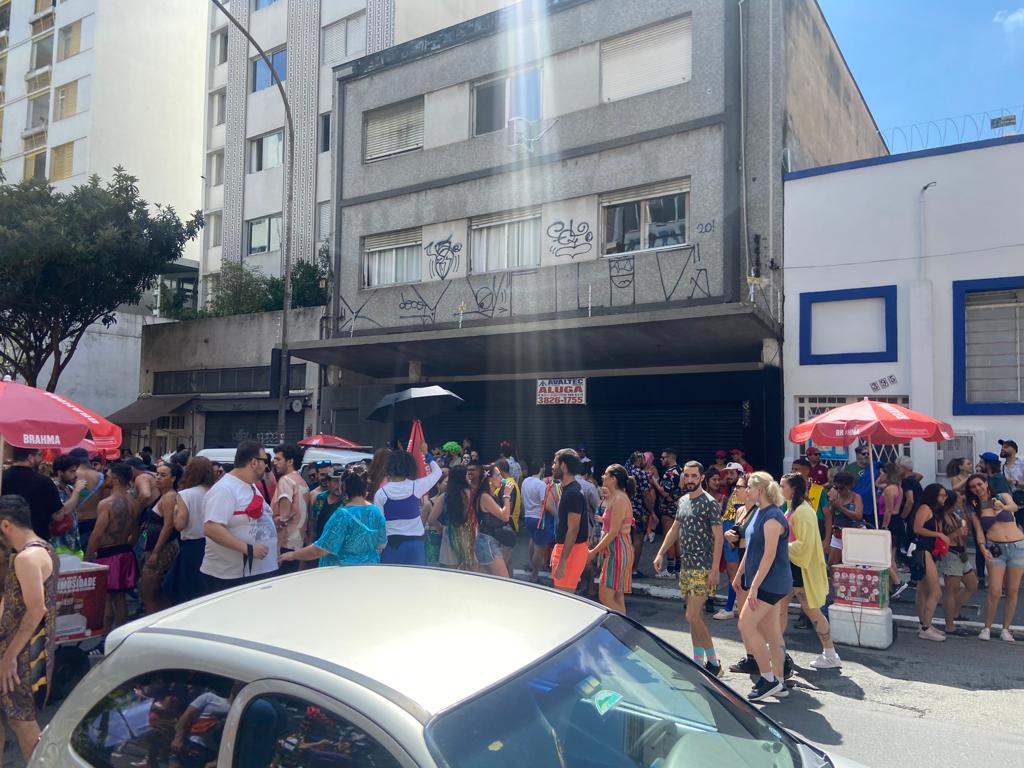
When the sun came out in São Paulo, people went to party in the street. Image courtesy of Tábata Viapiana/Brazil Reports
Democracy, diversity and celebrations of Afro-Brazilian culture
Carnival in Brazil is known for its diversity — not just in its varied musical rhythms, but also for welcoming minority communities. There are many blocks for the LGBTQIA+ community, but even at more traditional parties, people feel comfortable being who they are, dressing the way they want, and dancing and singing without shame.
“Unfortunately, Brazil is still a very homophobic country. But, at Carnival, I feel more comfortable kissing my boyfriend in public”, said administrative assistant Wellington Amorim. His boyfriend, Lucas, agreed: “The feeling at Carnival is unlike anything else,” he said.

Just months after an attempted takeover of Brazil’s government headquarters by supporters of former President Jair Bolsonaro, you could also feel the issue of democracy present at Carnival in some parts of the country.
One of Rio de Janeiro’s most iconic block parties, Cordão do Boitatá, chose the celebration of democracy as its theme this year. Created in 1996, and recognized as Cultural Heritage of Intangible Nature of the State of Rio de Janeiro, Cordão do Boitatá brought together more than 50,000 people for its party on Saturday.
“Carnival is not only a party, but also an act of resistance. So, nothing better than defending democracy in street blocks too,” said biologist Ricardo Andrade who attended the party.
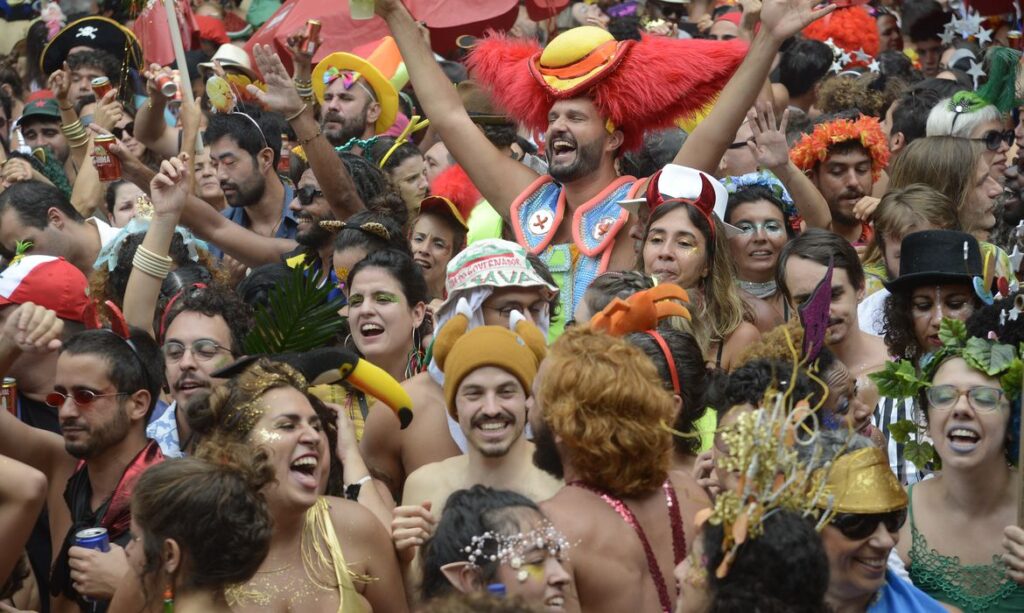
Carnival also highlights Brazil’s rich Afro-Brazilian culture.
Bloco Afro É Di Santo, a block in Brazil ‘s largest city, São Paulo, that features music from Afro-Brazilians and the African diaspora, was co-founded by Andrea Souza de Oliveira.
“One of our characteristics is to bring, to the drums, the rhythms of African religions and, from there, we find ourselves both in our faith and in the rhythm,” she said.
Biggest Carnival ever?
One of the most curious stories surrounding Brazil’s Carnival happened over a century ago. In 1918, because of the outbreak of the Spanish flu that killed at least 35,000 Brazilians, the country forgoed its Carnival celebrations that year.
In 1919, when the party returned to Rio de Janeiro — at the time the country’s capital — newspapers considered it the biggest Carnival in Brazil’s history.
Some researchers are comparing 1919’s Carnival to 2023’s, which is also an official return year after a worldwide pandemic.
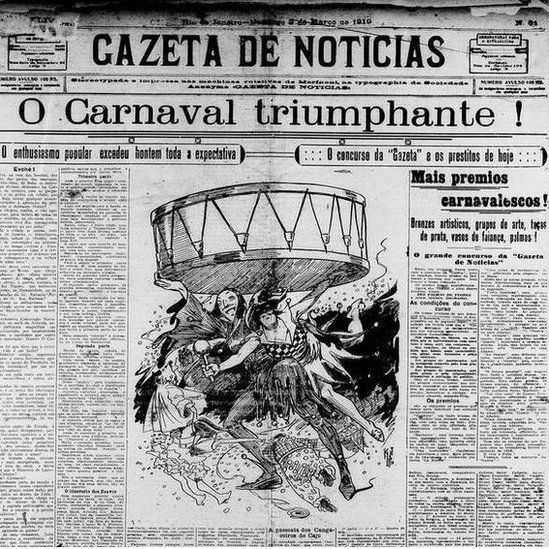
Júlia Figueredo, a public manager from Rio de Janeiro and admitted Carnival fanatic, wrote her college thesis in 2021 comparing 1919’s Carnival to the one which would come after the Covid-19 pandemic subsided.
“I compared how the authorities acted with the Spanish flu and with Covid-19,” Figueredo told Brazil Reports. “Back then, they said it was the biggest carnival ever.”
“The fast contagion, the strangulation of the hospital service, the authorities’ positions and public health guidelines are quite similar in the two pandemics,” Figueredo said, highlighting, as differences, the vaccines against Covid-19 and the higher number of sources of information, since, in 1919, there were only newspapers and no regulatory agency.
“In a pandemic lasting longer than that of 1919, Brazilians are already prepared for the festivities after Covid-19. Just like 100 years ago, it will be a Carnival to seize the chance to be alive and sing with open arms that ‘today is the day of joy and sadness can’t even think about arriving,’” she wrote in her thesis at the time, quoting a famous Carnival song about happiness.
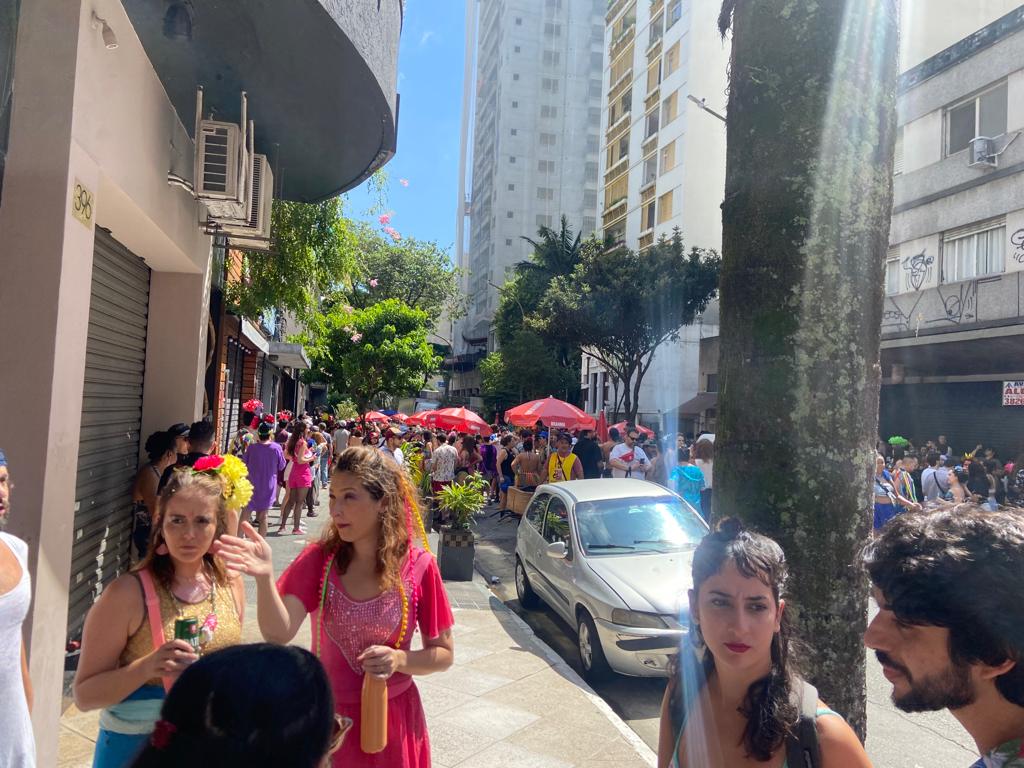
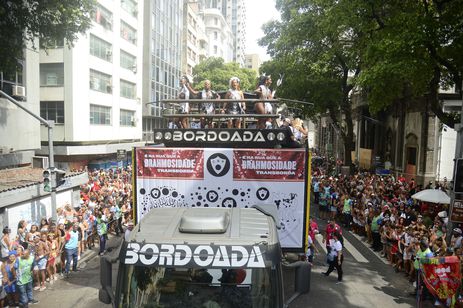
Figueredo has been playing on samba school drums since 2020 and, this year, she paraded on the drums of her favorite samba school of Rio de Janeiro: Estação Primeira de Mangueira. The parade happened on Monday, right on her 26th birthday.
“I’m a big fan of Carnival. I listen to samba daily and make videos about street rehearsals, samba schools, and the result of the parades,” she said. “I live and breathe Carnival. I feel that people are much more excited about Carnival this year.”


